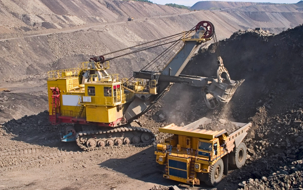It goes without saying that the mining sector is essential to the country’s economy, contributing significantly to government revenue through corporate and employee taxes, royalties and dividends.
In 2022, the sector generated approximately GH¢6.4billion in direct domestic tax receipts – making up about 16.6 percent of the country’s total tax revenue.
In addition, mining operations generate significant expenses, creating a market for mining support services which offer specialised goods and services at various stages of operations.
According to Dr. Charles Ofori, Policy Lead for Climate Change and Energy Transition at the Africa Centre for Energy Policy (ACEP), Ghana must implement a robust industrial policy to establish itself as a hub for mining support services within the West Africa sub-region.
He emphasised that an effective industrial policy would provide stakeholders with a framework to drive development and ensure sustained growth in the mining support services sector.
Dr. Ofori maintains that that industrial policy is critical for transforming Ghana into a leading provider of mining support services in Africa. Mining companies in the country spend a substantial portion of their budgets on procurement, primarily for goods and services which account for 31 percent to 64 percent of their mineral export revenue.
Gold production, in particular, is vital for foreign exchange earnings; accounting for around 39% of Ghana’s merchandise exports between 2011 and 2022. In 2022, gold generated around US$6.6billion, outpacing crude oil and cocoa exports.
These expenditures, estimated between US$995million and US$3.2billion annually, are categorised into local spending, energy costs and imported consumables.
Over the past decade, it is estimated that about US$1.4billion has gone to local suppliers, US$658million to energy costs and US$278million to imports, with local transactions representing around 87 percent of total spending.
And according to ACEP, it creates a market worth US$2billion for mining support service companies. It is on the back of this value that Dr. Ofori is stressing the need for strong collaboration among all stakeholders, including linking the manufacturing and industrial sectors to the mining sector to make what has been envisaged a reality.
The Ministry of Trade and Industry will have to lead industrial policy efforts and the Energy Ministry must provide manufacturers competitive pricing regarding tariffs, working closely with the Ministry of Lands and Natural Resources and its key agencies.










